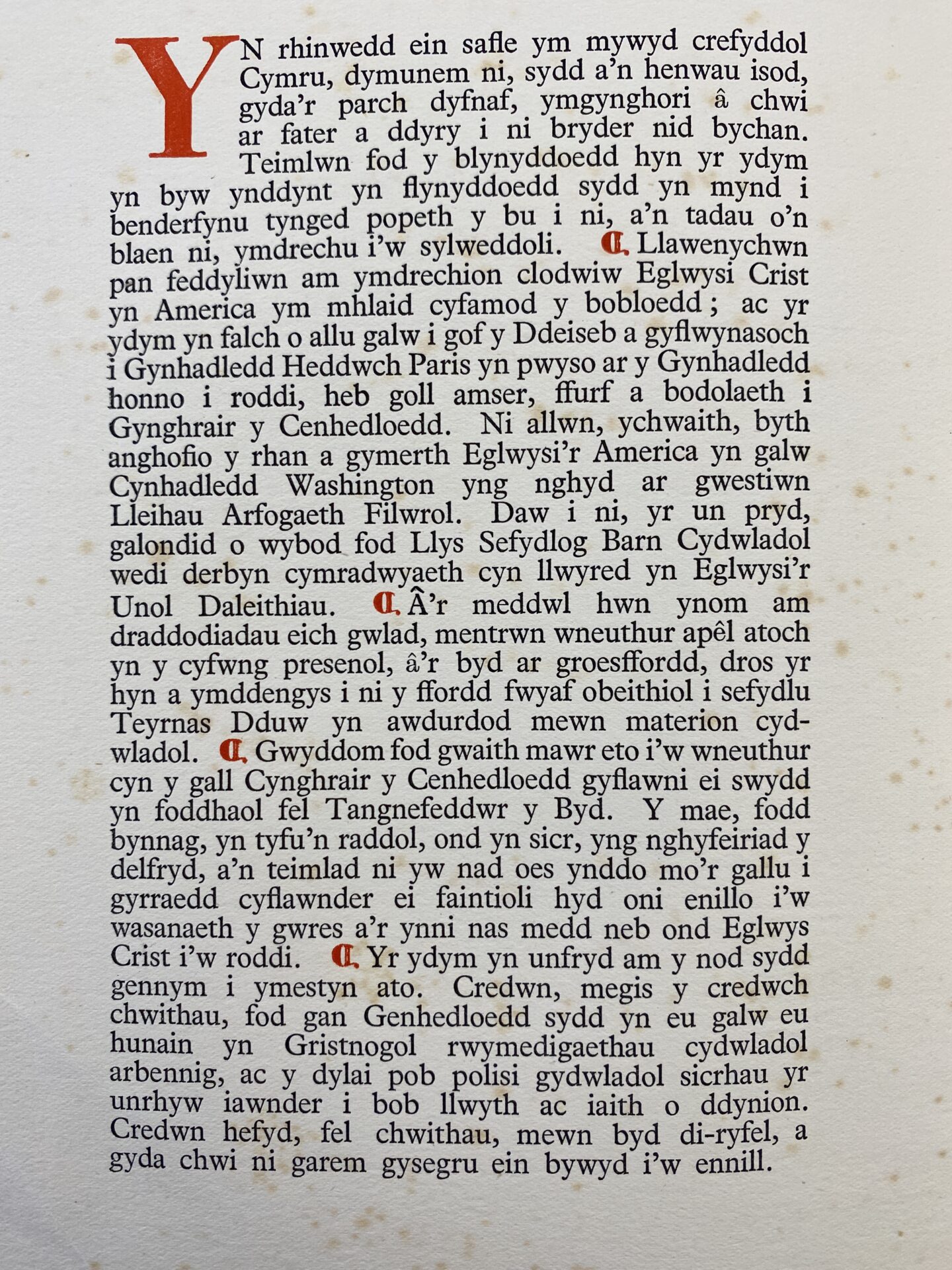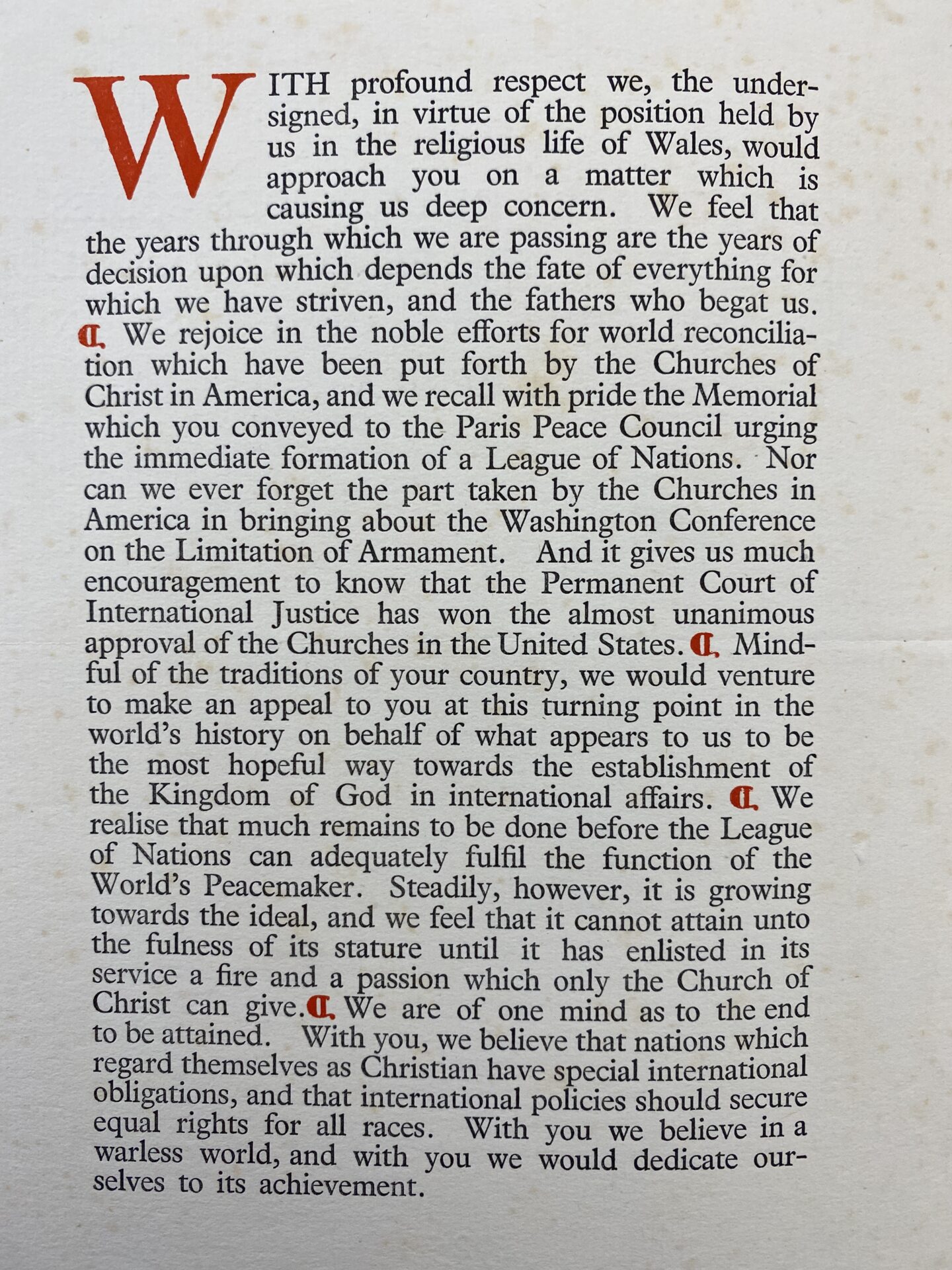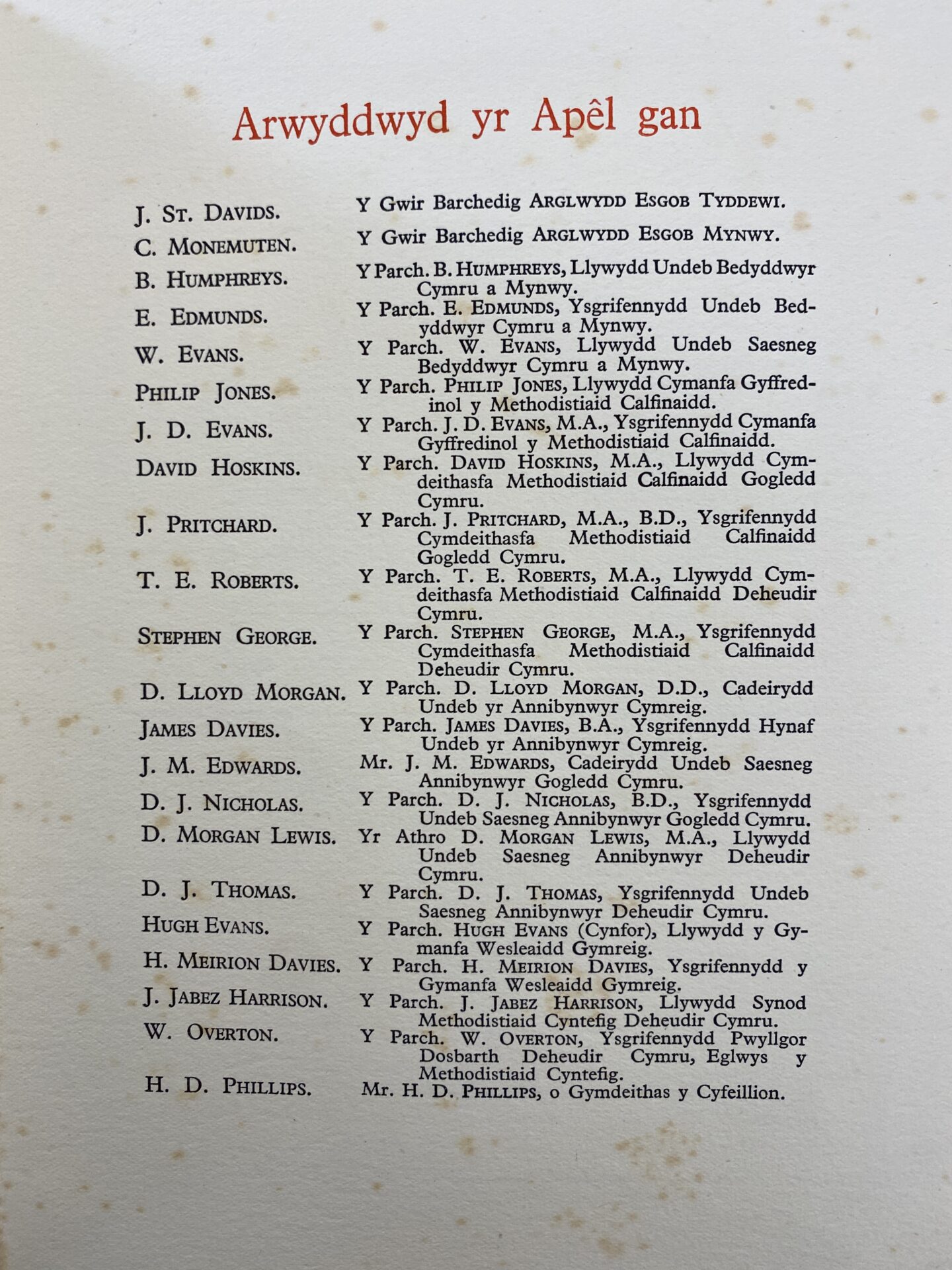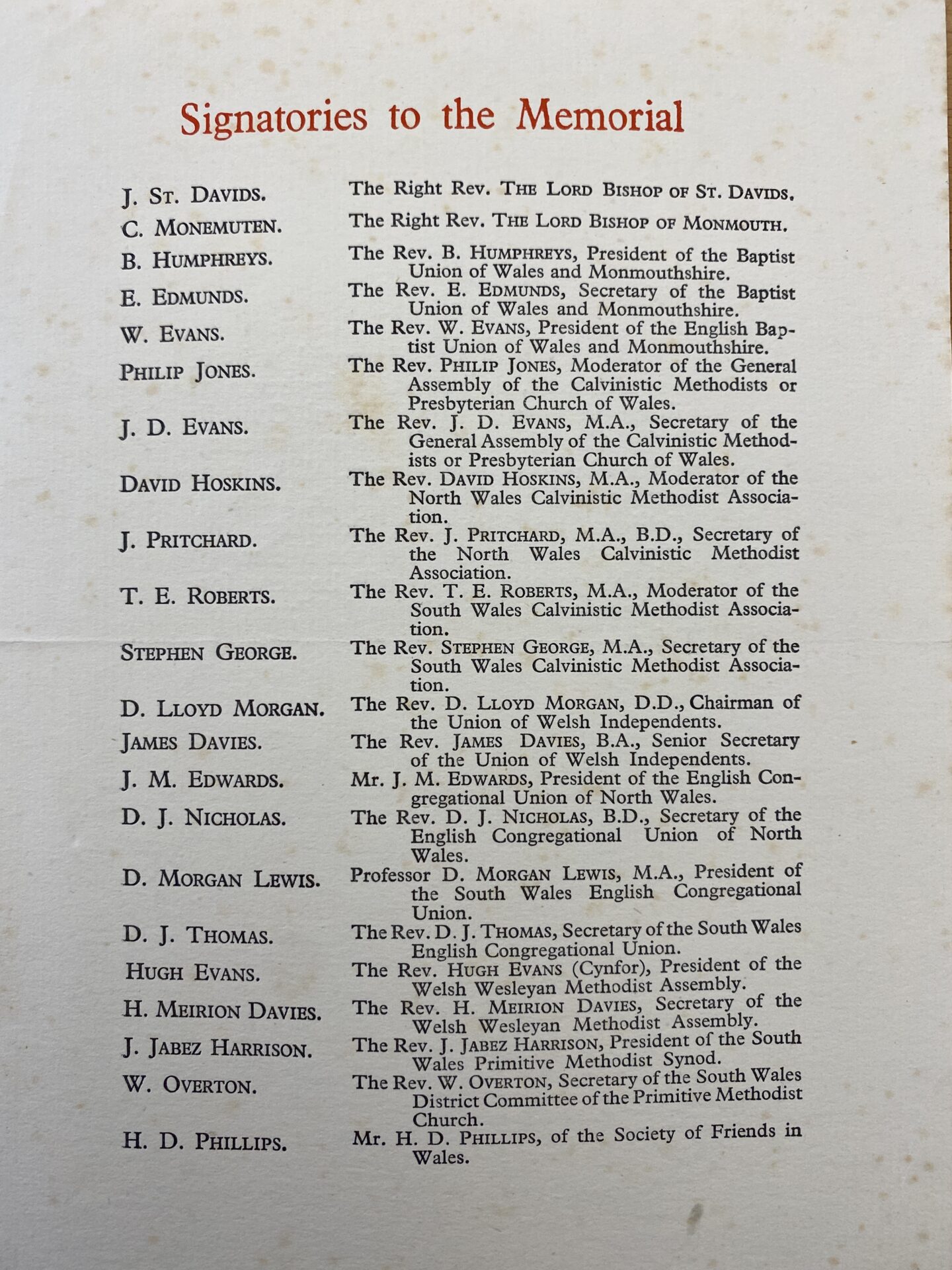Home > WW1 > Peacemakers Timeline > the 1925 Campaign > Peace Declaration > Signatories > Mission 2 America > Legacy > Wales as a Nation of Peace > Exhibition Loans
The Peace Declaration within the 1925 Churches Appeal appears to have been drafted by Rev Gwilym Davies, and then refined through input from the 22 faith leaders who signed the memorial. Correspondence over the weeks preceding the ‘mission to America’ seemingly led to some initial draft passages being removed and simplified.
The final text of the 1925 Churches Peace Declaration is transcribed below, annotated with links explaining contemporary aspects of the content – and context – that may be less familiar to viewers today.

Transcription of Text
A MEMORIAL FROM LEADERS IN RELIGIOUS BODIES IN WALES TO THE FEDERAL COUNCIL OF THE CHURCHES OF CHRIST IN AMERICA.
WITH profound respect we, the undersigned, in virtue of the position held by us in the religious life of Wales, would approach you on a matter which is causing us deep concern. We feel that the years through which we are passing are the years of decision upon which depends the fate of everything for which we have striven, and the fathers who begat us.
We rejoice in the noble efforts for world reconciliation which have been put forth by the Churches of Christ in America, and we recall with pride the Memorial which you conveyed to the Paris Peace Council urging the immediate formation of a League of Nations. Nor can we ever forget the part taken by the Churches in America in bringing about the Washington Conference on the Limitation of Armament. And it gives us much encouragement to know that the Permanent Court of International Justice has won the almost unanimous approval of the Churches in the United States.
Mindful of the traditions of your country, we would venture to make an appeal to you at this turning point in the world’s history on behalf of what appears to us to be the most hopeful way towards the establishment of the Kingdom of God in international affairs. We realise that much remains to be done before the League of Nations can adequately fulfil the function of the World’s Peacemaker. Steadily, however, it is growing towards the ideal, and we feel that it cannot attain unto the fulness of its stature until “it has enlisted in its service a fire and a passion which only the Church of Christ can give.” *
We are of one mind as to the end to be attained. With you, we believe that nations which regard themselves as Christian have special international obligations, and that international policies should secure equal rights for all races. With you we believe in a warless world, and with you we would dedicate ourselves to its achievement.” **
* this specific wording was lifted directly from the (1920?) report of the Lambeth Conference on International Affairs
** the penultimate sentence “equal rights for all races” carries significance as this campaign pre-dates, by 3 decades, the American Civil Rights movement of 1954-68 which fought to abolish segregation and discrimination across the United States. Gwilym Davies observes in his diary that the Detroit Congress included African American religious leaders.
Illuminated Text


Leaflet Version
This version was printed and circulated to signatories and congregational supporters, whilst the Memorial itself was being produced over November 1925, to illustrate the final form of the Churches Peace Appeal. The differences are
- The leaflet includes the Welsh translation
- Leaflet is in printed text rather than handwritten illumination
- Declaration and signatories are contained to 1 page each, rather than spread across 3.





